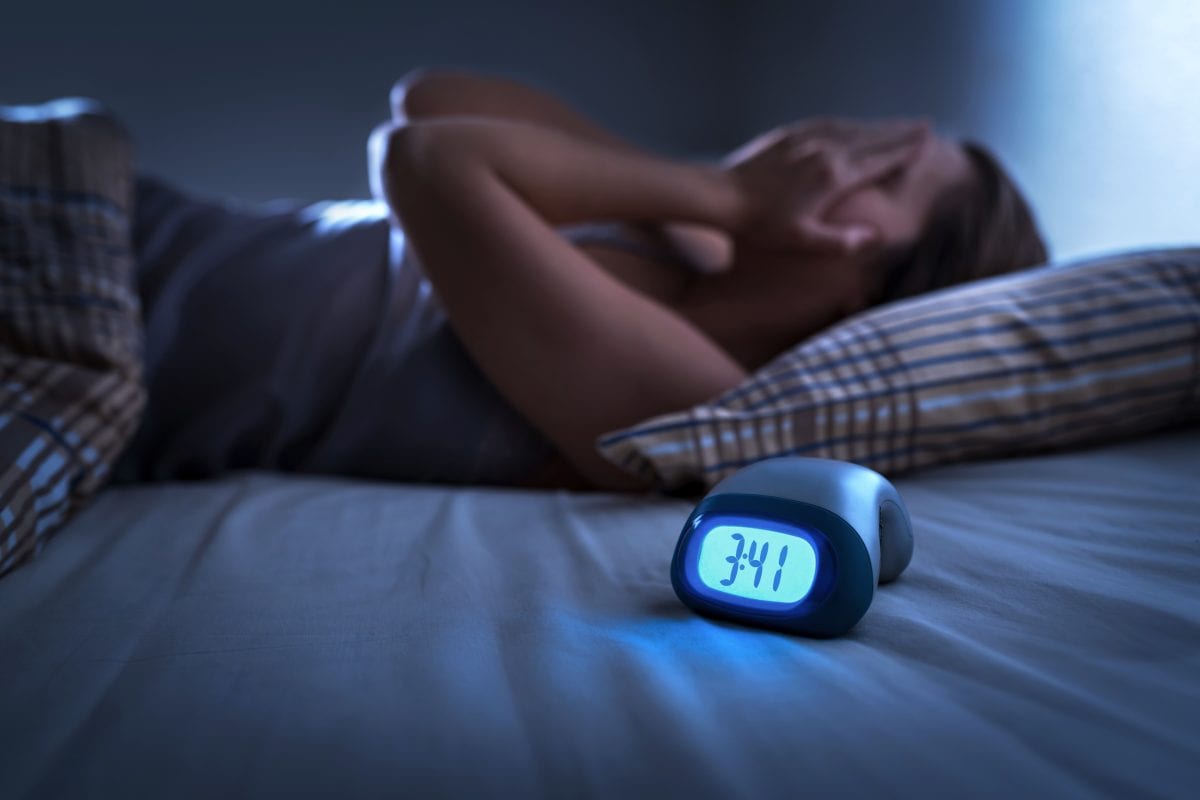Last Updated on July 19, 2024 by Paola Castillo
If you struggle to fall asleep at night, you’re not alone. Nearly 70% of Americans have trouble sleeping on a weekly basis. A busy lifestyle can make it difficult to get enough shuteye, leaving you wondering how to fix your sleep schedule.
Part of the problem is that we often have to stay up late to work or take care of household tasks. This leaves us feeling groggy the next day and interrupts our natural sleep cycles. Stress can also make us toss and turn at night, as can using electronic devices too close to bedtime. All of these factors disrupt our circadian rhythms and cause sleeping problems that deprive us of the essential rest we need. The lack of sleep can influence our mental and physical health.
Fortunately, there are things you can do to get your sleep schedule back on track. You can get to bed earlier and feel rested in the morning as long as you prioritize sleep and make some changes to your habits. To help you sleep better at night, we’ve put together this list of tips on how to fix your sleep schedule and improve your sleep quality, including how to get more deep sleep.

How To Fix Your Sleep Schedule
Fixing your sleep schedule once it gets off track isn’t easy. It definitely takes some effort to change the ingrained habits that are contributing to your sleep problems. But falling asleep at a regular time and feeling rested is definitely possible. If you follow our tips on how to fix your sleep schedule, you should be able to drift off earlier and get the shuteye you need.
Gradually shift your sleep schedule

If you’re wondering how to fix your sleep schedule, moving up your bedtime slowly is the best way to do it.
Trying to reset your sleep cycle all at once usually doesn’t work. Going to sleep several hours earlier than you normally do is very difficult. Since your body is used to staying up much later, you won’t be tired enough to fall asleep and will toss and turn for most of the night.
Pulling an all-nighter to try to reset your sleep schedule is also ineffective. It’s extremely difficult, not to mention unhealthy, to stay awake for 24 hours. If you try it, you’ll probably end up falling asleep before you reach your desired bedtime, throwing off your sleep schedule even more.
So if you want to readjust your sleep schedule, try gradually moving up your bedtime instead. Set an achievable goal, like going to bed 15 minutes earlier each night. It may take you a while to reset your sleep cycle completely, but you’ll definitely get there with enough patience and persistence.
Put your devices away

Scrolling through Instagram on your phone can seem like a great way to relax before bed. However, the blue light that your phone emits actually wakes you up by suppressing melatonin, a hormone that makes you feel drowsy and ready for sleep. If you’re especially concerned about how to get more deep and restful sleep, melatonin plays a vital role in this.
Although it’s hard to disconnect from your devices in the evening, it’s something you’ll need to do if you want to fix your sleep schedule. You should aim to put your phone, tablet, and computer away at least an hour before you plan to go to sleep. You can still watch your favorite shows, though — experts say your television probably won’t affect your sleep because it gives off less blue light than your computer or phone. Especially if you’re interested in getting deep sleep
If you really need to use your phone or tablet at night, you can install software that makes the light coming from the warmer. Another option is wearing computer glasses that are designed to block blue light.
Take time to unwind

Making time for some self-care in the evenings will help you destress and get in the right frame of mind to fall asleep. Before you go to bed, try to do something relaxing, like reading a book, journaling, or taking a bath. Make sure your environment is calm and tranquil — dim the lights, pour yourself a hot cup of tea (preferably decaffeinated) and play some mellow music. Do whatever you need to do to unwind.
It can be hard to find time for yourself when you have a seemingly endless to-do list. But reserving even a few minutes at the end of the day for yourself will vastly improve your sleep quality. So if you struggle with insomnia or other sleep problems, try to create a relaxing bedtime routine and see if it helps.
Don’t nap late in the day

If you get home from work feeling tired and run down, it’s tempting to curl up in bed and take a nap. However, napping too late in the day can interfere with your sleep schedule and make it harder to fall asleep at night.
During the day, neurotransmitters that cause sleepiness (such as adenosine) have a chance to build up in our systems. By the time we go to bed, we’re so tired that it’s easy to drift off. But when we sleep during the day, our adenosine levels drop. That’s why napping in the evening can throw off your sleep schedule. When bedtime rolls around, your adenosine levels may not be high enough to make you feel drowsy.
For that reason, you may want to avoid naps while you’re trying to fix your sleep schedule. Of course, you can reimplement them if you feel they are necessary. If you feel like you can’t function without your daily nap, try to take it in the early afternoon and keep it short. Napping for more than 20 or 30 minutes during the day can reduce your sleep quality.
Don’t exercise or eat too close to bedtime

Working out in the evening seems like a great way to tire yourself out before bed. But exercise can actually have the opposite effect and make it harder to drift off. Doing a strenuous workout activates your stress response and causes the release of hormones like cortisol and adrenaline. These hormones make it difficult to relax and fall asleep, so you should try to work out in the morning rather than at night. Fortunately, there are some ways to naturally increase your levels of melatonin, the hormone that induces sleep. One such method known as red light therapy can be a great way to improve the quality of your sleep.
Experts also recommend that you avoid eating before bed. Lying down right after eating can cause heartburn, which will only make your insomnia worse. Try to eat your last meal at least two or three hours before you plan to go to bed.
Don’t sleep in

After a long workweek, shutting off your alarm and sleeping in for as long as you want feels wonderful and refreshing. Unfortunately, though, waking up later than you usually do can cause your sleep schedule to get off track. If you sleep in for a few hours on Saturday morning, you’ll probably stay up later than normal that night. Then you’ll have a much harder time getting to bed on Sunday because your body adapted to staying awake later over the weekend.
If you want to fix your sleep schedule for good, you’ll have to maintain consistent sleep and wake times. Otherwise, your sleep schedule will slowly shift until you’re back to staying up too late. Therefore, try not to sleep in for more than an hour on weekends and also try to go to sleep at your regular bedtime if possible. Sticking to your routine on the weekends is tough, but it’s one of our best tips for fixing your sleep schedule. We recommend giving it your best effort.
If you’re still not sleeping well, talk to your doctor
If you’ve tried everything on this list and you’re still having trouble sleeping, it’s probably time to talk to your doctor. According to a naturopathic doctor in Scottsdale, some sleeping problems can’t be resolved without the help of a medical professional. You may need medication, a CPAP device, or supplements like melatonin to help you drift off or treatments like bright light therapy to reset your circadian rhythm. Your doctor will be able to pinpoint the cause of your sleeping problems, suggest treatments, and advise you on how to fix your sleep schedule so that you can finally get the rest you need.
Conclusion
As many of us lead such busy lives, it’s easy for our sleep schedules to get off track. Working late on a big project for a week may be all it takes for your circadian rhythm to get misaligned. Readjusting your sleep schedule does take some effort, but it is achievable. But now that you know how to fix your sleep schedule, if you do your best to minimize stress before bed and follow our tips on how to fix your sleep schedule, hopefully, you’ll be back to your normal sleeping pattern in no time.
Here are a few hand-picked articles for you to read next: